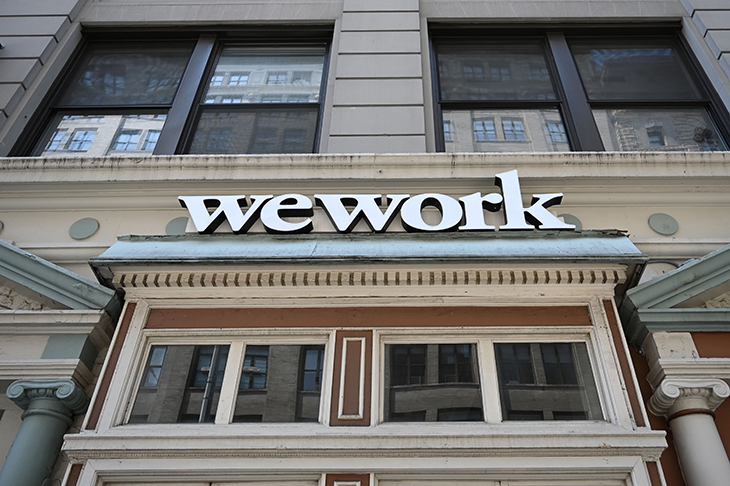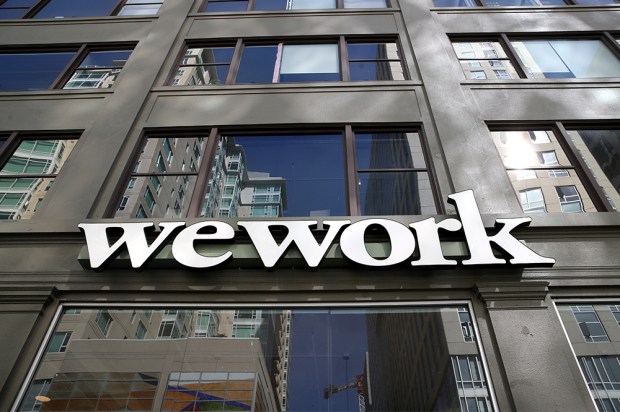Long ago in my investment banking days I had a glimpse into the mind of the British Airways long-haul pilot. Chatting to an attendant on a flight from London to Delhi, I let slip what I did for a living. ‘The captain would like a word,’ she whispered a few minutes later. Up in the cockpit I found the pilot and co-pilot, feet up as the plane flew itself towards the lightning-lit Himalayan horizon, deep in discussion of their portfolios. ‘Heard we had an expert on board. Which way’s this stock market going, then?’
Those flying fat cats must now be comfortably retired on the final-salary pensions BA no longer offers their successors — who have been striking this week in pursuit of more than a current pay offer of an 11.5 per cent rise over three years. In particular, pilots want a share of BA profits which hit £2 billion in 2018 — pointing out that in 2009, when the airline lost £230 million, they accepted a 3 per cent pay cut in exchange for future awards of BA stock.
But they’re winning no sympathy from travellers afflicted by flight cancellations, or anyone else. The pilots’ average £167,000 basic salary plus allowances places them, as the Telegraph noted, ‘among the highest paid workers ever to strike’; they already earn a third more than their Ryanair peers, and additional grievances such as having to endure stopovers in less-than-five-star hotels only make them look greedier.
An inside source tells me this dispute is the product of years of friction between remote, cost-paring managers and flight crew who daily face unhappy customers. That’s a poor excuse for current disruption, but their demand to share profits is still worth discussing — if they’re also willing to share losses, as they have done in a small way in the past. All businesses work more harmoniously when the interests of staff, management and shareholders are closer aligned. BA pilots should count their blessings and get back in their cockpits — but should also make sure the profit-share question stays on the boardroom table.
Regret for M&S
Should we regret the passing of Marks & Spencer from the FTSE 100? The high-street retailer was a founder member of the blue-chip share index in 1984 and its relegation to the lesser FTSE 250 — to be replaced by a Russian miner called Polymetal International — is certainly significant. M&S once stood for everything that was best about British business, including product quality, high staff welfare, strong relationships with suppliers and attention to shareholder value. Now, after two decades of boardroom turmoil and cut-price competition, its fall from the FTSE 100 after a four-year slide in its share price confirms its retreat.
But with retail turnaround specialist Archie Norman in the chair, it still has a fighting chance. What the make-up of the FTSE 100 illustrates is not a one-way story but a Game of Thrones saga of rising and falling corporate fortunes. Of the original 100 constituents, only 27 are still there; the others have all been acquired, broken up or bankrupted. To have survived as recognisably the same business over that 35-year period is an achievement that speaks of M&S’s residual strengths; sometime soon, I hope, the market will see it as a recovery stock.
Overhyped and overstretched
When I visited the WeWork building on Marylebone Road in search of one of our Disruptor entrants, I found a buzzy atmosphere that felt like a student union. Maybe that’s what this New York-based office-sharing company means by its slogan ‘the power of we’; but it also felt anarchic — as though the students had occupied an admin block as a protest — and it certainly didn’t make me want to buy shares in the concept at the kind of inflated valuation WeWork’s backers have lately been hoping for.
WeWork operates buildings in 125 cities around the world, housing some half-million ‘members’, many of them digital start-ups. It calls itself a ‘community company committed to maximum global impact’ but it’s a long way from becoming a profitable one: in the first half of this year it lost $910 million on revenues of $1.5 billion, while analysts worried about its mismatch of long-term leases against short-term tenancies. Founder Adam Neumann has nevertheless cashed out $700 million and was hoping to be made much richer by an IPO, based on an indicative valuation of $47 billion and led by J. P. Morgan and Goldman Sachs.
But after recent limp market debuts for tech stocks such as Uber and Lyft, there’s talk of slashing WeWork’s valuation to below $20 billion or (as its shareholder Softbank of Japan has reportedly urged) shelving the IPO altogether. The latter sounds sensible to me. A fancy app for booking office space hardly makes it a ‘tech stock’, after all; in reality, as investors can see, WeWork is no more than an overhyped and probably overstretched urban landlord.
Sting in the PPI tale
A footnote to last week’s comment on the end of the PPI scandal: the final claims deadline on 29 August turns out to have attracted a last-minute tsunami of calls, far beyond all banks’ estimates. The cost to PPI market leader Lloyds will be as much as £1.8 billion on top of previous provisions; at Barclays the final sting could be £1.6 billion; at RBS, still 62 per cent owned by the taxpayer, £900 million; and at the smaller Clydesdale and Yorkshire Bank group, a potentially catastrophic £450 million.
So that’s an unexpected £4 billion-plus coming back to consumers in extra payouts and at least one very unexpected PPI loser: Sir Richard Branson, who became CYBG’s biggest shareholder when it bought Virgin Money in an all-share deal last year, but whose stake has lost £300 million in value as CYBG’s shares have since fallen by two-thirds, largely due to PPI worries. A merger or takeover seems highly likely to follow; perhaps even a Branson-led rescue.
Got something to add? Join the discussion and comment below.
Get 10 issues for just $10
Subscribe to The Spectator Australia today for the next 10 magazine issues, plus full online access, for just $10.
You might disagree with half of it, but you’ll enjoy reading all of it. Try your first month for free, then just $2 a week for the remainder of your first year.















Comments
Don't miss out
Join the conversation with other Spectator Australia readers. Subscribe to leave a comment.
SUBSCRIBEAlready a subscriber? Log in